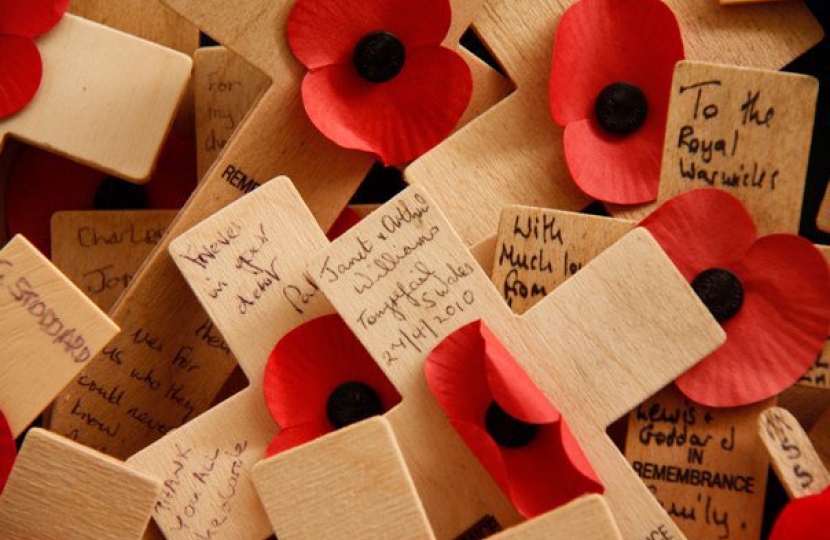
Remembrance Day this year was a particularly special year for remembering, since it was 100 years since the beginning of the First World War – a war that cost millions of lives, including some 888, 246 British or colonnial soldiers. Defeating the largest and best equipped army in Europe was always going to mean a terrible human price and as we mark the anniversary of the WW1 Armistice it is time to focus on the courage and sacrifice of our forbears.
The night before the Somme, hundreds and thousands of our men, most of whom were not profesisonal soldiers, were briefed for the attack the next morning. It was to be by far the largest operation, up to that time, in British history. Nothing could have prepared our soldiers for the living hell of shrapnel and rifle machine and gun fire that greeted them as they rose from the trenches.
This year also marks 70 years since the D-Day landings, and the year the British ended its combat role in Afghanistan after 13 years of fighting. Standing at the war memorial in Kenilworth on Sunday in the company of veterans decorated with their medals, it was difficult not to feel humbled by the fortitude and bravery of our servicemen and women.
This year I was particularly struck by the number of people who had come out to pay tribute; all age groups were represented, from the very young to the elderly, personnel from the three services, cadets representing the future armed forces and families who have lost loved ones.
What united them was not just the red poppy pinned on almost every chest, but their reason for being there - to stand together in memory of the nation's war dead. Each of us can ask what we can do for the forces, as a teacher of a soldier’s child, as an employer of a reservist, as a doctor treating a military patient. We can all support the armed forces community throughout the year not just in November by offering help and friendship to those affected by conflict and war.
‘We will remember them’.
